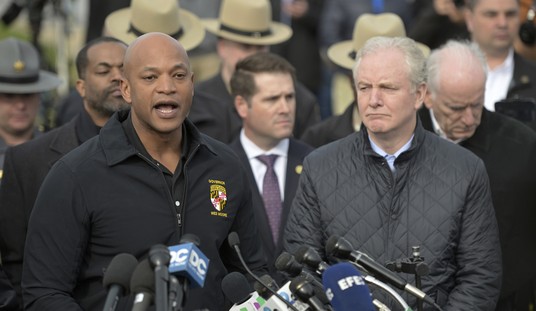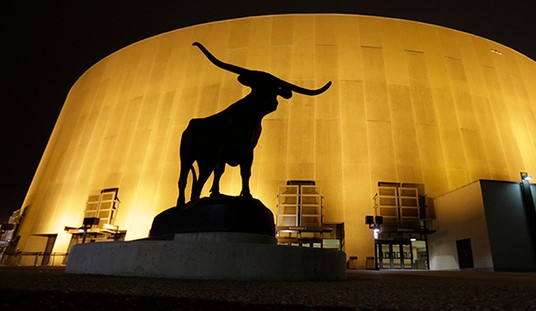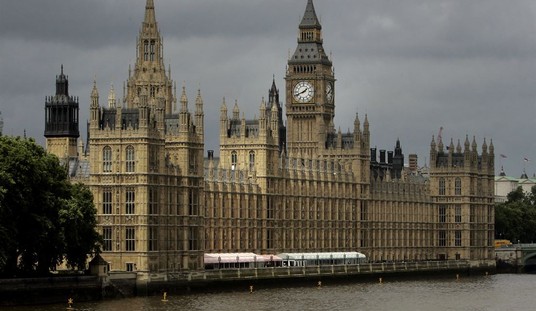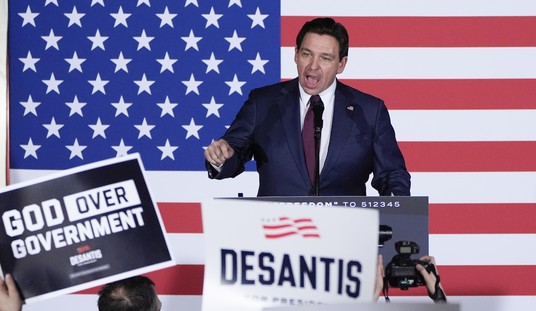I’ve got the dogma in me
I’ve got the dogma in me
I’ve got the dogma in me, yeah — Kiki Dee Band in 2017, probably
After Dianne Feinstein asked Notre Dame law professor Amy Barrett about how Catholic “dogma lives loudly” within her, two university presidents want her and other members of the Senate Judiciary Committee to stop interrogating judicial nominees on religious beliefs. The presidents of Notre Dame and Princeton both sent pointed letters to Feinstein and Judiciary chair Chuck Grassley after Barrett’s treatment, reminding them of both Article VI in the Constitution and the role religion has played in American culture since its founding:
At least two prominent university presidents are accusing senators of religious bias for challenging a Catholic judicial nominee over her faith-driven views during a confirmation hearing last week.
University of Notre Dame President Rev. John Jenkins and Princeton University President Christopher Eisgruber both wrote letters objecting to lawmakers’ pointed questions on the topic to Notre Dame law professor Amy Barrett last week, whom President Donald Trump has nominated to the Chicago-based 7th Circuit U.S. Court of Appeals.
Fr. Jenkins called Feinstein’s question “chilling,” and appears to be an attack on faith itself. Jenkins reminded the California Democrat that dogma has lived loudly in the hearts of Americans for as long as the nation has existed:
Your concern, as you expressed it, is that “dogma lives loudly in [Professor Barrett], and that is a concern when you come to big issues that large numbers of people have fought for years in this country.” I am one in whose heart “dogma lives loudly”, as it has for centuries in the lives of many Americans, some of whom have given their lives in service to this nation. Indeed, it lived loudly in the hearts of those who founded our nation as one where citizens could practice their faith freely and without apology.
Professor Barrett has made it clear that she would “follow unflinchingly” all legal precedent and, in rare cases in which her conscience would not allow her to do so, she would recuse herself. I can assure you that she is a person of integrity who acts in accord with the principles she articulates.
It is chilling to hear from a United States Senator that this might now disqualify someone from service as a federal judge. I ask you and your colleagues to respect those in whom “dogma lives loudly”—which is a condition we call faith. For the attempt to live such faith while one upholds the law should command respect, not evoke concern.
Eisgruber, who found himself in the middle of controversy earlier this year over selective admissions, specifically reminded Feinstein and Grassley of their duty to uphold and defend the Constitution and Article VI. Eisgruber couches this in the context of his own positions on robust challenges to judicial nominees, but argues that attacking religious faith is out of bounds — and that Feinstein committed an injustice with Barrett:
In my book The Next Justice: Repairing the Supreme Court Appointments Process (Princeton University Press, 2007), I argued that your committee need not defer to presidential nominations, and that the Constitution permits senators to probe the judicial philosophies of nominees. It is, however, possible to probe those philosophies without reference to the religious affiliation or theological views of a nominee, and Article VI insists that the Senate observe that restriction.
The questions asked of Professor Barrett about her Catholic faith appear to have been provoked in part by her co-authored article, “Catholic Judges in Capital Cases” (1998). I have read that article, and I believe that the views expressed in it are fully consistent with a judge’s obligation to uphold the law and the Constitution. As a university president committed to free speech, academic freedom, and religious pluralism, I must add that, in my view, Professor Barrett’s qualifications become stronger by virtue of her willingness to write candidly and intelligently about difficult and sensitive ethical questions: our universities, our judiciary, and our country will be the poorer if the Senate prefers nominees who remain silent on such topics.
I am deeply concerned by the harsh and often unfair criticisms that are now routinely levelled [sic] from both sides of the political spectrum against distinguished judicial nominees who would serve this country honorably and well. On the basis of her accomplishments and scholarly writing, I believe that Professor Barrett is in that category. She and other nominees ought in any event to be evaluated on the basis of their professional ability and jurisprudential philosophy, not their religion: every Senator and every American should cherish and safeguard vigorously the freedom guaranteed by the inspiring principle set forth in Article VI of the United States Constitution.
For those who don’t recall and can’t be bothered to read the US Constitution, Article VI states: “no religious Test shall ever be required as a Qualification to any Office or public Trust under the United States.” The founders included this to indirectly keep the federal government from establishing a state religion, an effort that became explicit in the First Amendment. The point was not to keep religious sensibilities from informing the performance of public duties, but to keep the state from imposing a single theology as a requirement for public service. It was in response to Great Britain’s insistence on excluding people who did not adhere to the Church of England from public office — notably and ironically, Catholics.
Now, though, Senate Democrats appear to be imposing a similar test on behalf of the “theology” of atheism, or at least on a commitment to only social-posing religion. It’s okay to identify as Catholic or Christian, as long as one professes to reject a true faith in Catholicism or Christianity. Jenkins (with whom I have differed in the past) wisely gets to the precise point here, which is that Feinstein and other Democrats are essentially demanding that people of faith repudiate it as a prerequisite to public office. As Eisgruber notes in his letter, that is itself a religious test that offends Article VI — and ought to offend Americans of every creed in every corner of the nation. And it is well worth noting that neither Jenkins nor Eisgruber come from the starboard side of the political ship, either.
On another positive note, Catholics and Christians seem to be adopting another grand American tradition — claiming ownership of a political attack and turning it against the attackers. In the days since Feinstein’s inquisition, numerous people of faith have embraced “dogma lives loudly within you” as a slogan for religious belief and liberty.
Update: The US Conference of Catholic Bishops issued a scathing statement Friday about this as well. Chairman Archbishop William Lori castigated the Senate for hinting at a revival of “anti-Catholic bigotry”:
America has a strong and venerable tradition of pluralism that respects all religious views. In this context, this week’s hearing before the U.S. Senate Judiciary Committee is deeply disappointing. Rather than simply consider the professional achievements of a nominee for the federal judiciary, multiple senators challenged her fitness to serve due to her Catholic faith.
Such questions are not just contrary to our Constitution and our best national traditions, which protect the free exercise of one’s faith and reject religious tests for public office, they are offensive to basic human rights. They also, sadly, harken back to a time in our country when anti-Catholic bigotry did distort our laws and civil order. These comments are a reminder that we must remain vigilant against latent bigotries that may still infect our national soul.
Were the comments of the Senators meant as a warning shot to future law students and attorneys, that they should never discuss their faith in a public forum, if they have aspirations to serve in the federal judiciary? In truth, we should be encouraging faithful, ethical attorneys to serve in public office, not discouraging them by subjecting them to inappropriate, unnecessary interrogation based on their religious beliefs.
People of faith—whatever faith they may hold—should not be disqualified because of that faith from serving the public good. Rather than hold people of faith in suspicion, our laws and lawmakers should tolerate, if not celebrate, the role faith has in society and in the lives of individuals. To do otherwise is contrary to the ideals of a healthy, pluralistic society.
Indeed. Maybe Feinstein should consider this when blathering on about “diversity.”








Join the conversation as a VIP Member